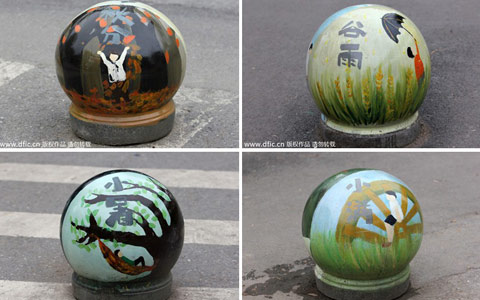Chinese university head lauds US-China partnerships
Updated: 2014-05-03 06:19
By MICHAEL BARRIS in New York (China Daily USA)
|
||||||||
US-China partnerships in higher education are "good for the parties" involved because they invariably lead to knowledge that produces new products and services that improve our lives, the president of a Chinese university said.
"When you have more people sitting together to exchange ideas, you are bound to learn something new," Timothy Tong, president of Hong Kong Polytechnic University, said in a talk at Manhattan's Princeton Club.
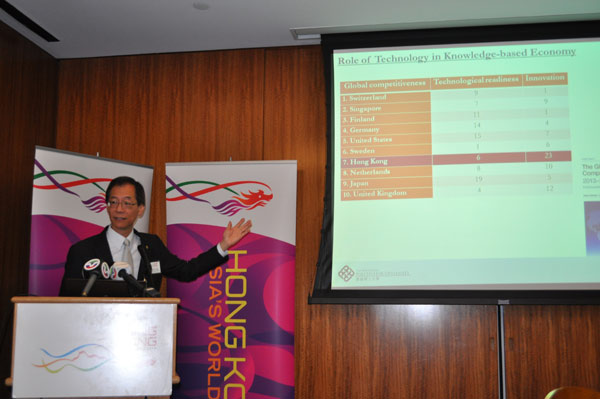 |
|
Timothy Tong, president of Hong Kong Polytechnic University, talks about the role of technology in economic growth and global competitiveness at Manhattan's Princeton Club on Friday, May 2. Globally, Hong Kong ranks seventh in competitiveness, Tong said, citing statistics provided by the World Economic Forum. The US ranks fifth and Switzerland is first. (MICHAEL BARRIS/CHINA DAILY) |
Tong, a former dean at George Washington University in the US, spoke on Hong Kong, technology and innovation at a luncheon sponsored by the Hong Kong Economic and Trade Office in New York.
"We in Hong Kong are "very serious about partnership," Tong said, adding that HKPU collaborates with more than 100 US institutions of higher education.
"We want our students to get study-abroad experience," he said. "This year 600 of our students are studying elsewhere in the world."
Tong said HKPU can increase the number of students studying internationally by "creating even more partnerships around the world, in particular in places like the US" because its schools represent "a vast source" of ideas.
Tong, who assumed duties as HKPU president in 2009 after serving as dean of the School of Engineering and Applied Science at George Washington University, said he also has strived to increase academic partnerships with universities in Hong Kong and on the Chinese mainland.
Technology is crucial in spurring economic growth and global competitiveness vital to increase living standards, he said. Hong Kong, whose innovation and technology industry in 2012 was valued at HK $13.4 billion, or 0.7 percent of GDP, ranked seventh in global competitiveness in 2013-2014, according to a report by the World Economic Forum. Switzerland was first overall, followed by Singapore, Finland, Germany, the US and Sweden. Trailing Hong Kong were Netherlands, Japan and the UK.
Hong Kong is striving to increase technology development by setting up incubators, offering research and development cash rebates, increasing annual funding to universities and encouraging collaboration with counterparts on the Chinese mainland, Tong said. The university president said he supports Hong Kong Chief Executive Leung Chun-ying's plan to establish an innovation and technology bureau in the region by summer to boost its economy.
"It's long overdue," and needs to be put in place promptly, he said.
He called the Chinese mainland's spending close to 2 percent of GDP on research and development a sign the region wants to be "a serious player" in the innovation industry. "That's very serious money," Tong said.
Tong talked about how the university has put a priority on collaborating with industry on projects such as cancer-fighting drugs. BCT-100, a drug that helps starve and kill cancer cells is the first "Made in Hong Kong" drug approved by US Food and Drug Administration to enter clinical trials in US, he said. A local pharmaceutical company is further developing the drug for the commercial market.
A PolyU-industry partnership also produced the "Hand of Hope", a robotic hand that helps stroke patients regain hand movements, Tong said. Licensed to a local company for commercial exploitation worldwide, the project captured the grand prize in the 2012 Geneva Invention Exhibition.
Tong also discussed a PolyU-industry produced railroad monitoring system that uses optical sensors to diagnose the health of tracks and railcars.
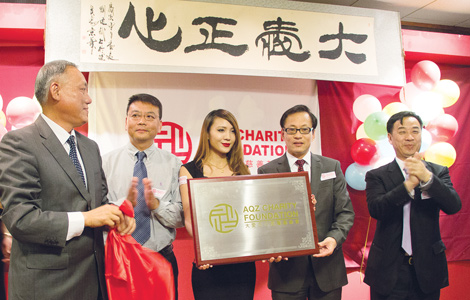
 Sino-US doctors join hands to fix young hearts
Sino-US doctors join hands to fix young hearts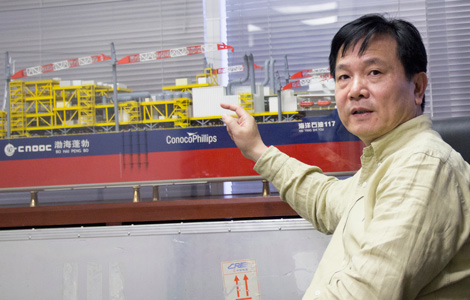
 CSSC to expand its offshore businesses
CSSC to expand its offshore businesses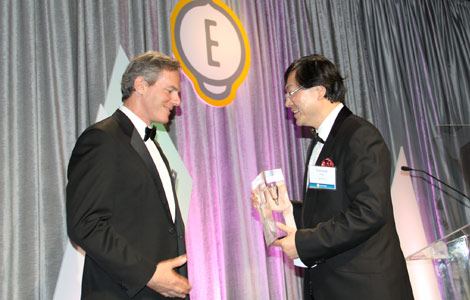
 Lenovo CEO honored with Edison innovation award
Lenovo CEO honored with Edison innovation award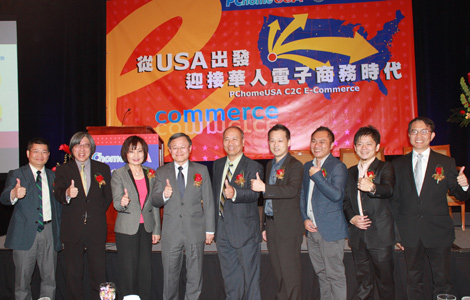
 Shopping spree
Shopping spree
 Top 10 world's highest-paid athletes
Top 10 world's highest-paid athletes
 NY real estate firms woo Chinese buyers
NY real estate firms woo Chinese buyers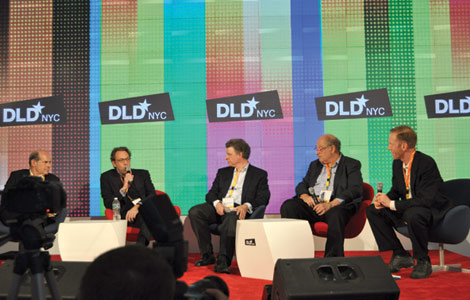
 China 'to lead' digital revolution
China 'to lead' digital revolution
 Miss CA: Key to success is to 'keep trying'
Miss CA: Key to success is to 'keep trying'
Most Viewed
Editor's Picks

|

|

|

|

|

|
Today's Top News
China's manufacturing picks up in April
Chinese firms join IBM's new chip-tech group alliance
Xbox One may see buying rush in China
China's Xi orders 'crushing blow' to terrorism
Malaysia releases preliminary report on MH370
China, Russia to hold joint military exercise in May
Chinese, Australian PMs discuss MH370 flight
China, Russia to hold joint military exercise in May
US Weekly

|

|


